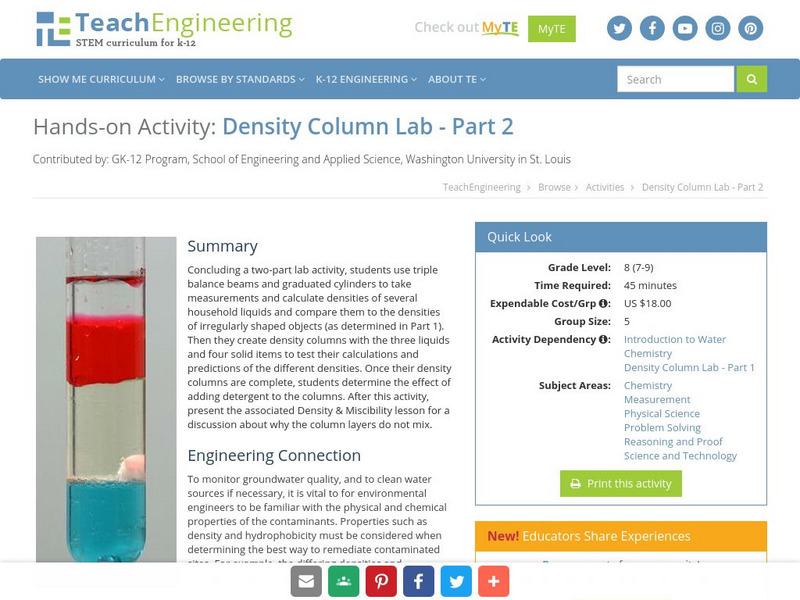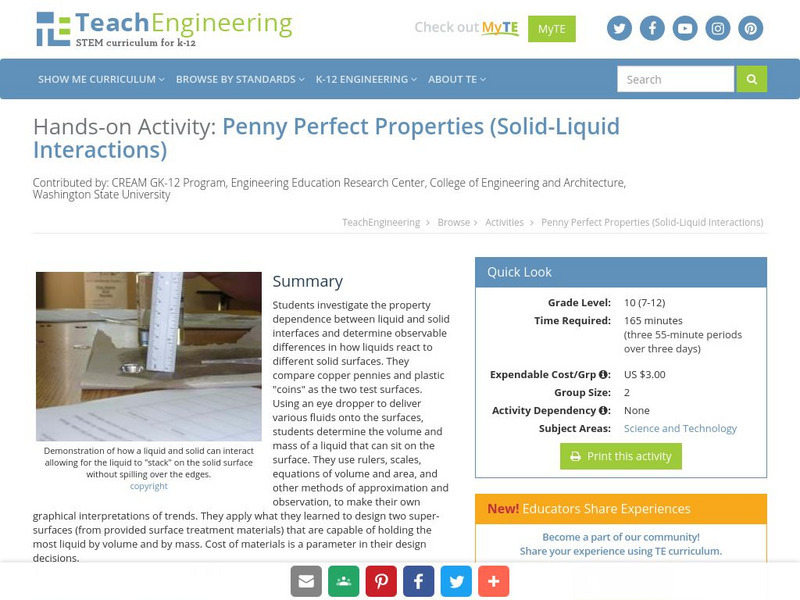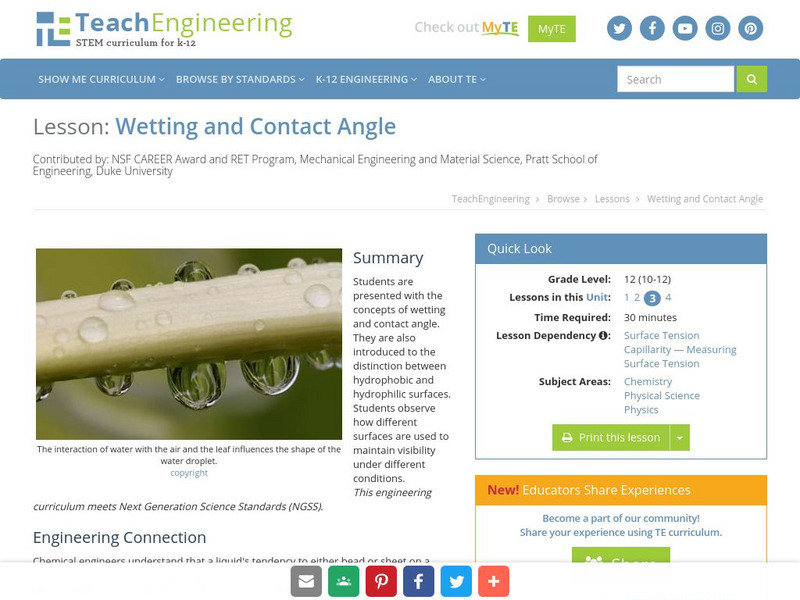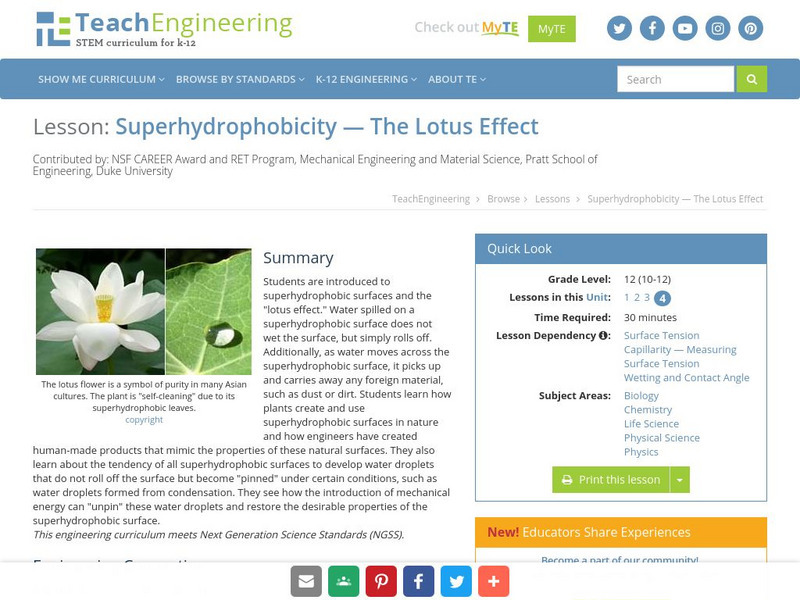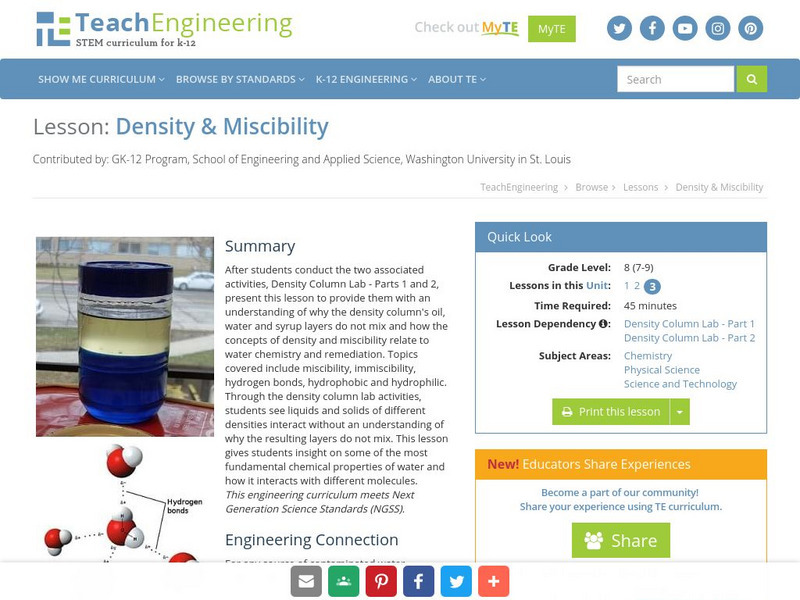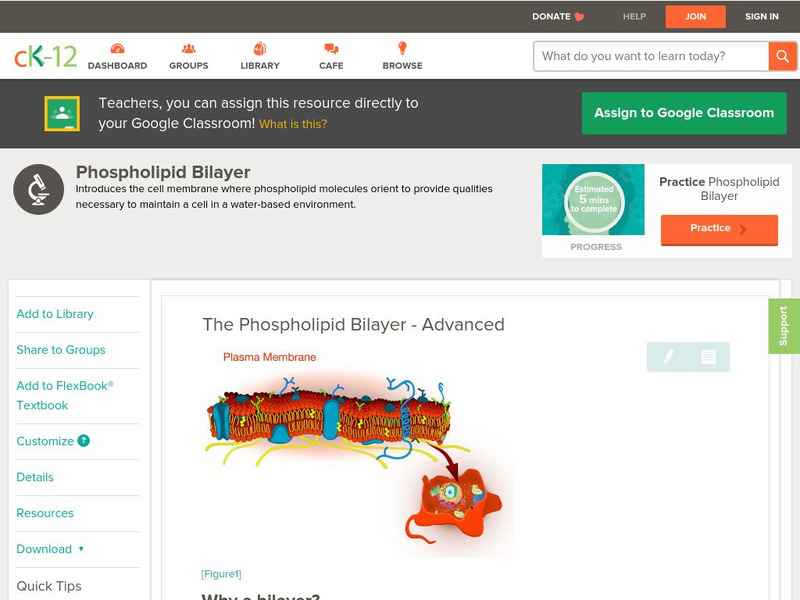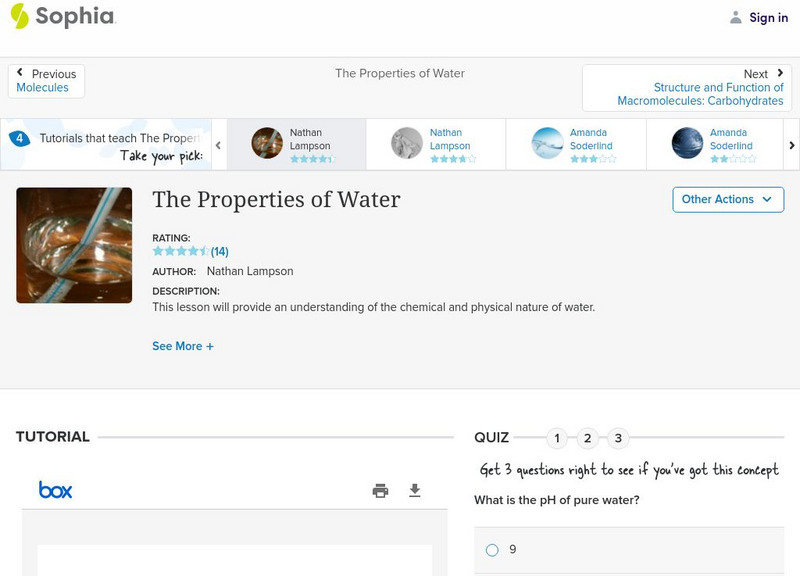Curated OER
Modeling the Cell Membrane
In this membrane permeability worksheet, students read introductory information about the cell membrane structure as it pertains to permeabillity and draw a representation of the membrane as they complete a lab. Students record the...
TeachEngineering
Teach Engineering: Investigating Contact Angle
Students observe how water acts differently when placed on hydrophilic and hydrophobic surfaces. They determine which coatings are best to cause surfaces to shed water quickly or reduce the "fogging" caused by condensation.
TeachEngineering
Teach Engineering: Tension Racers!
Students see how different levels of surface tension affect water's ability to move. Teams "race" water droplets down tracks made of different materials, making measurements, collecting data, making calculations, graphing results and...
TeachEngineering
Teach Engineering: Density Column Lab Part 2
Concluding a two-part lab activity, students use triple balance beams and graduated cylinders to take measurements and calculate densities of several household liquids and compare them to the densities of irregularly shaped objects (as...
TeachEngineering
Teach Engineering: Penny Perfect Properties (Solid Liquid Interactions)
Students investigate the property dependence between liquid and solid interfaces and determine observable differences in how liquids react to different solid surfaces. They compare copper pennies and plastic "coins" as the two test...
TeachEngineering
Teach Engineering: Wetting and Contact Angle
Students are presented with the concepts of wetting and contact angle. They are also introduced to the distinction between hydrophobic and hydrophilic surfaces. Students observe how different surfaces are used to maintain visibility...
TeachEngineering
Teach Engineering: Superhydrophobicity: The Lotus Effect
Students are introduced to superhydrophobic surfaces and the "lotus effect." Water spilled on a superhydrophobic surface does not wet the surface, but simply rolls off. Additionally, as water moves across the superhydrophobic surface, it...
TeachEngineering
Teach Engineering: Surfactants: Helping Molecules Get Along
Students learn about the basics of molecules and how they interact with each other. They learn about the idea of polar and non-polar molecules and how they act with other fluids and surfaces. Students acquire a conceptual understanding...
TeachEngineering
Teach Engineering: Density & Miscibility
After students conduct the two associated activities, Density Column Lab - Parts 1 and 2, present this lesson to provide them with an understanding of why the density column's oil, water and syrup layers do not mix and how the concepts...
Other
Chem Cases: Nutra Sweet: Physical and Chemical Properties
An in-depth look at the physical and chemical properties of aspartame, or NutraSweet.
CK-12 Foundation
Ck 12: Biology: Phospholipid Bilayers
[Free Registration/Login may be required to access all resource tools.] Describes the structure and function of the plasma membrane.
Concord Consortium
Concord Consortium: Polar and Nonpolar Interface
Observe how molecules with hydrophilic and hydrophobic regions move in a mixture of oil and water, and pay attention to changes in potential energy over time. Move and rotate the molecules to see how they interact with their surrounding...
Other
Dr. Paul's Virtually Biology Show: Lipids and Fats Phospholipids
See a good overview of what phospholipids are and the role they play.
Sophia Learning
Sophia: The Properties of Water: Lesson 3
This lesson will provide an understanding of the chemical and physical nature of water. It is 3 of 4 in the series titled "The Properties of Water."
Sophia Learning
Sophia: The Properties of Water: Lesson 4
This lesson will provide an understanding of the chemical and physical nature of water. It is 4 of 4 in the series titled "The Properties of Water."
Sophia Learning
Sophia: The Properties of Water: Lesson 1
This lesson will provide an understanding of the chemical and physical nature of water. It is 1 of 4 in the series titled "The Properties of Water."





